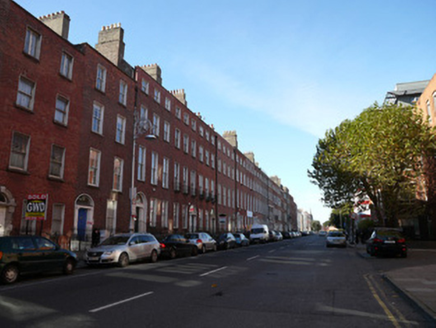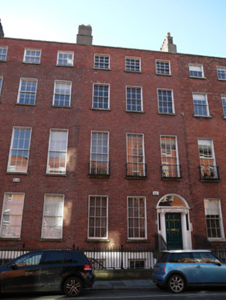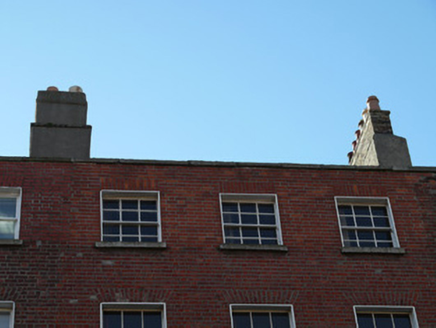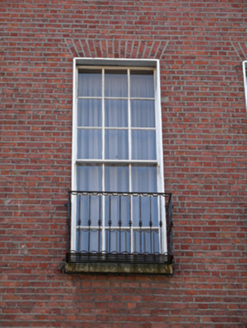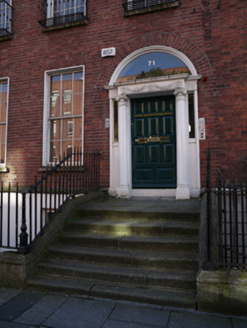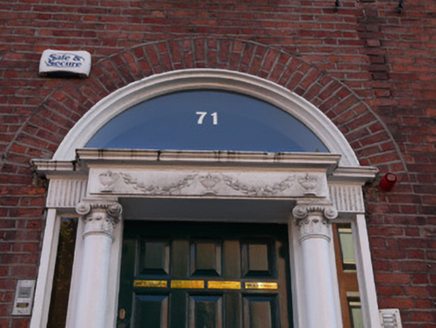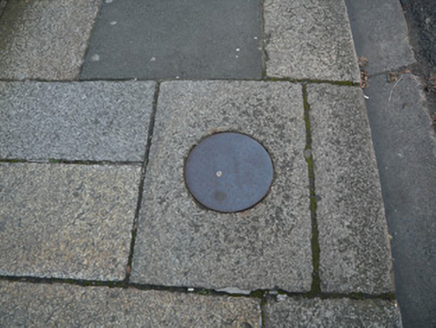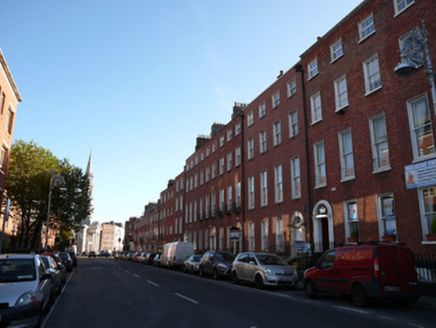Survey Data
Reg No
50070478
Rating
Regional
Categories of Special Interest
Architectural, Artistic, Social
Original Use
House
In Use As
Surgery/clinic
Date
1770 - 1790
Coordinates
315561, 235545
Date Recorded
27/10/2012
Date Updated
--/--/--
Description
Terraced three-bay four-storey over basement former house, built c.1780, now in use as healthcare clinic. Pitched roofs, front (north) pitch parallel to street, rear pitches perpendicular. Parapet with granite capping to front elevation. Rendered chimneystacks to party walls. Red brick walls laid in Flemish bond having recent red bricks to third floor. Cut granite plinth course over rendered walls to basement. Square-headed window openings having patent reveals and granite sills. Six-over-six pane timber sash windows. Balconettes to first floor windows. Round-arched door opening having painted masonry door surround with engaged Ionic columns supporting a frieze decorated with urns and garlands. Plain fanlight. Plain sidelights having fluted frieze above. Timber panelled door. Granite steps to entrance platform. Cast-iron railings on granite plinth wall. Basement area enclosed from pavement by granite plinth wall with cast-iron railings with recent metal gate. Recent external metal stairs to basement area from pavement. Square-headed door opening to basement having recent metal door. Cast-iron coal-hole cover set in granite pavement to front of house.
Appraisal
This well proportioned former house makes an important contribution to the streetscape. Its Ionic door surround is typical of a type considered fashionable in Dublin in the late eighteenth century. It retains early fabric including sash windows, door surround and door. It shares a number of details with its neighbours such as the Ionic door surround, window arrangements and balconettes thereby forming a coherent terrace. Eccles Street was laid out in 1772 by the Gardiner Estate. It was to be an arterial route leading to Gardiner's ambitious yet unrealised Royal Circus, planned for the north-west end of Eccles Street. The south side of the street is an impressive, almost entirely, late eighteenth-century terrace with taller buildings to the centre of the terrace.
